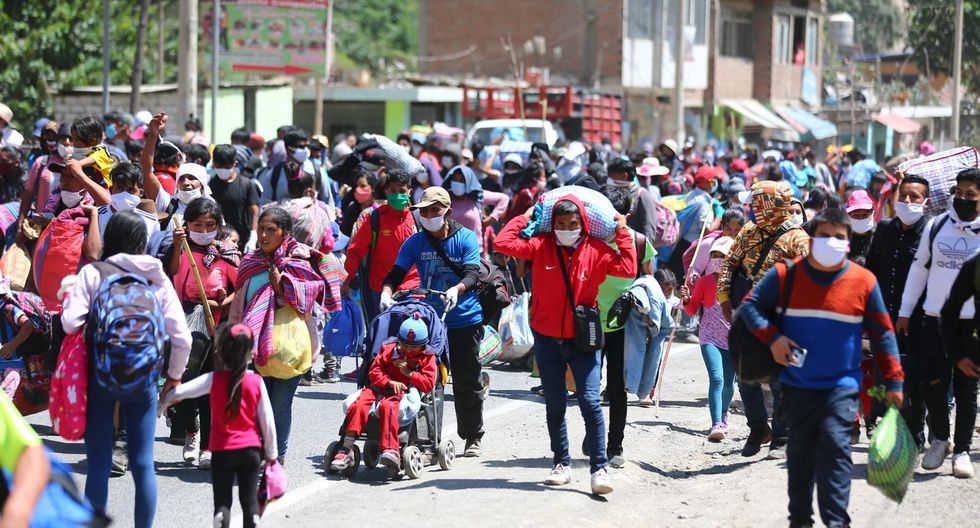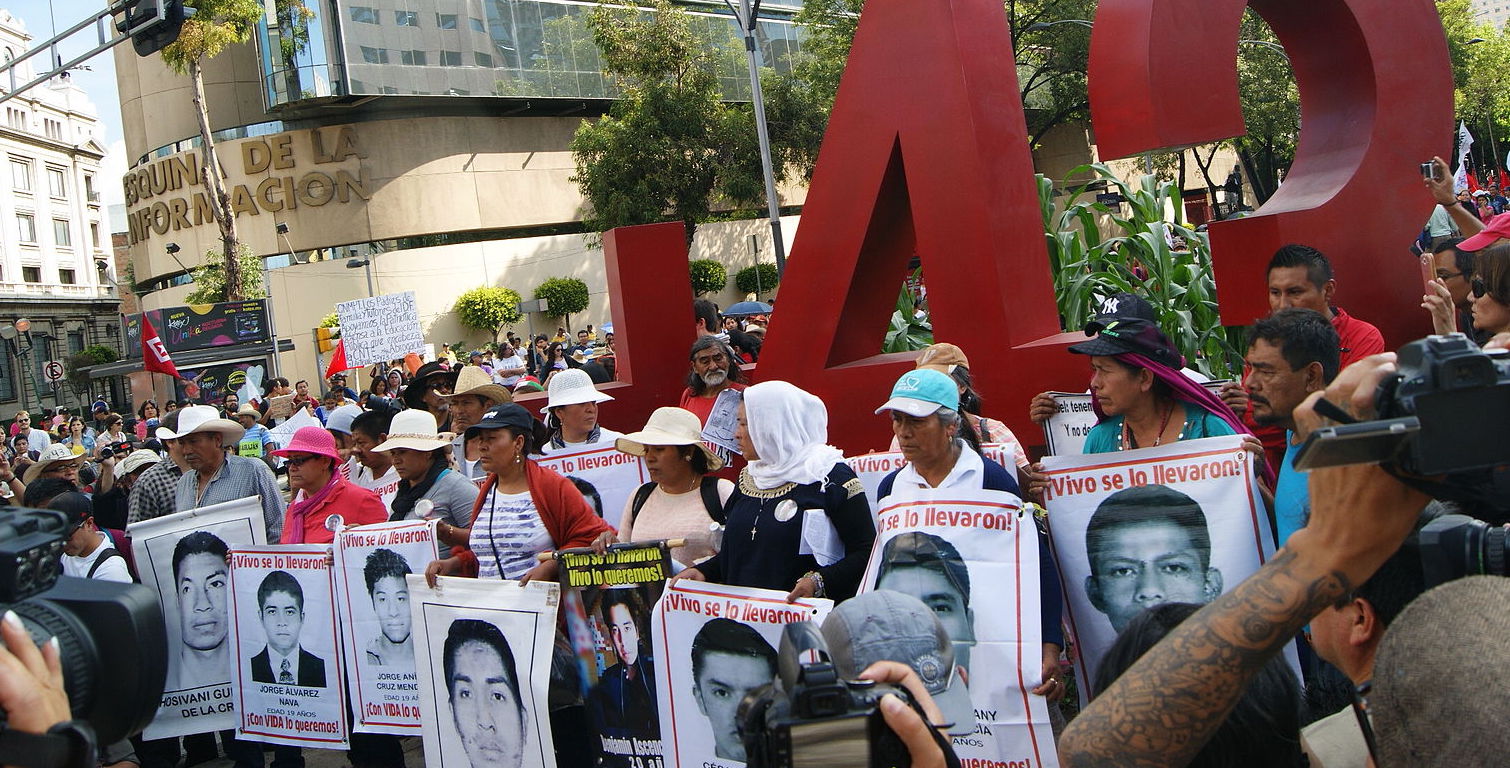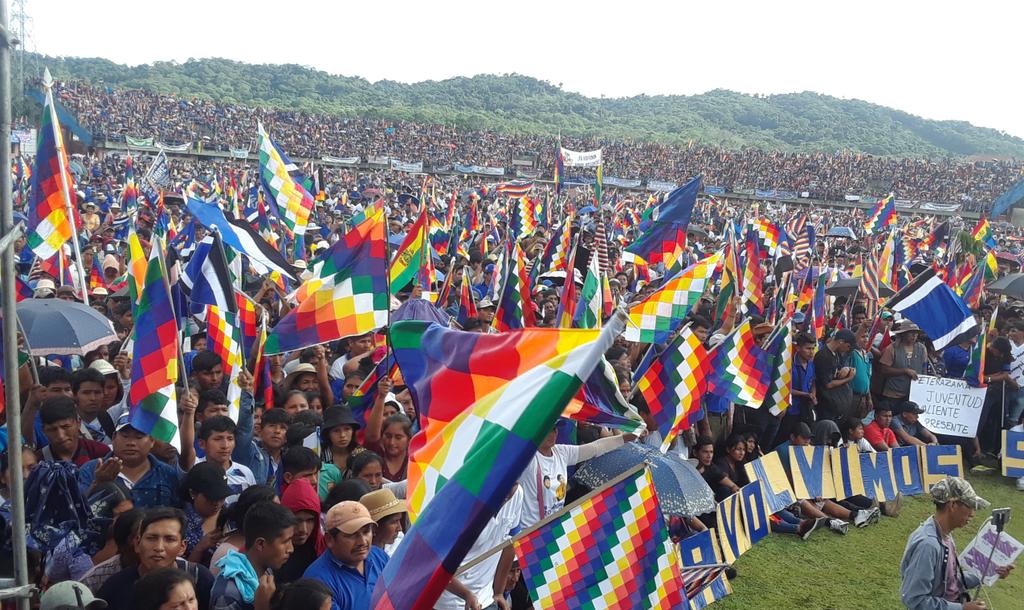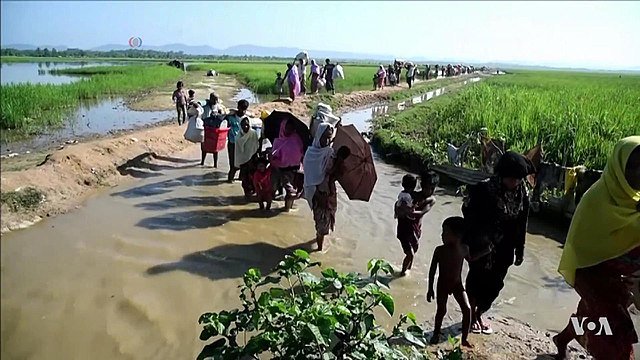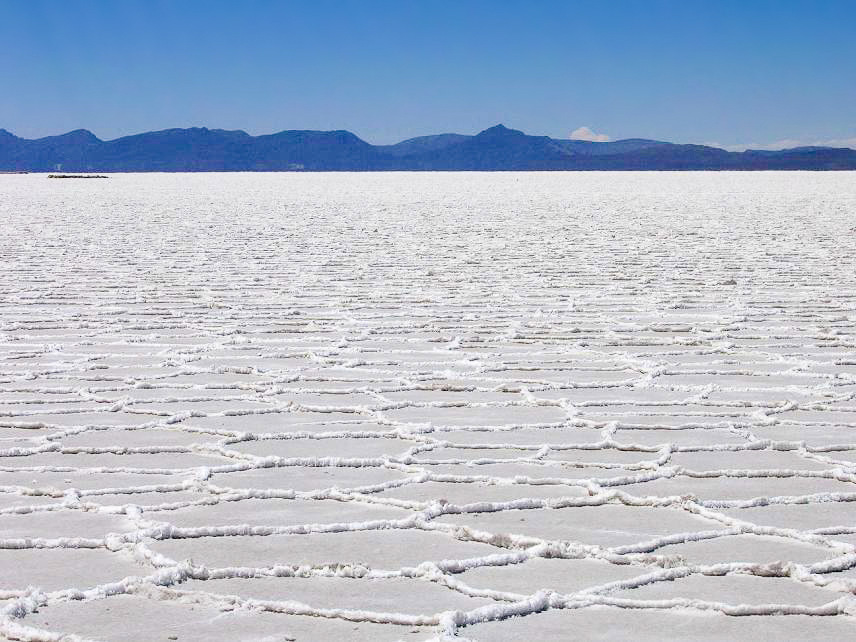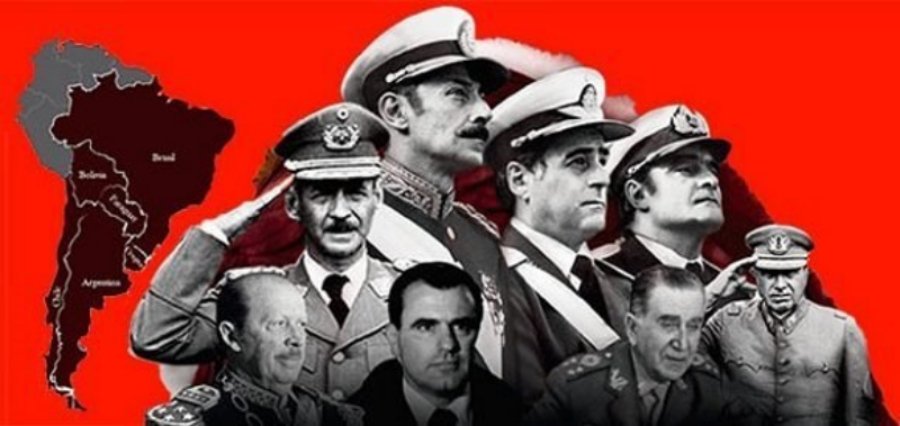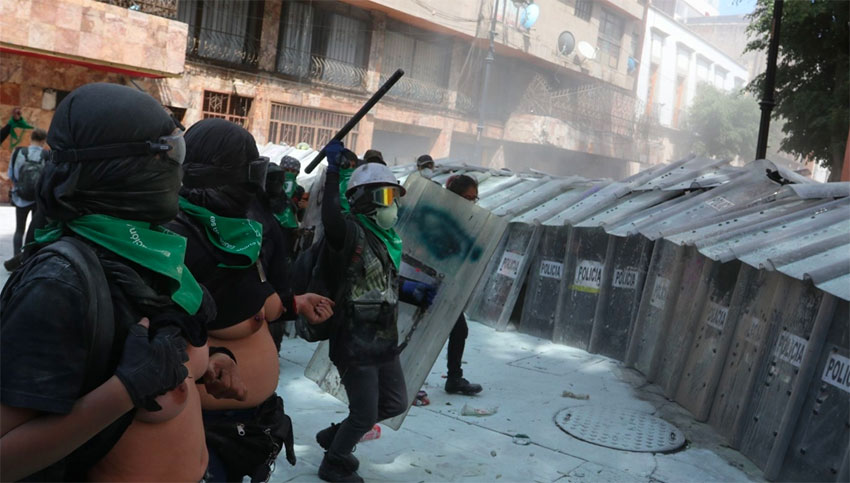
Mexico City: militant protest for reproductive rights
A march for abortion rights turned violent in Mexico City as a group of women wearing ski-masks and armed with hammers clashed with police. Members of the Bloque Negro feminist collective joined the protest after departing from the headquarters of the National Human Rights Commission (CNDH), which they had been occupying for weeks and had turned into a shelter for victims of gender violence. With their path to the city’s historic center blocked by riot police, some threw Molotov cocktails and charged the police lines. Some of the women also bared their breasts, even as they wore goggles and helmets. Authorities said 11 police were injured in the confrontation. The demonstration was part of a Day for Decriminalization of Abortion in Latin America & the Caribbean on the eve of International Safe Abortion Day. In Mexico, abortion is only legal in the Federal Distriact and southern state of Oaxaca during the first 12 weeks of pregnancy. In the rest of the country, it only permitted under limited circumstances, such as if a woman has been raped. (Photo via Mexico News Daily)



